Hibiscus rosasinensis China Rose World of Flowering Plants
Onenezz Hibiscus RosaSinensis
Quick facts Common name Tropical hibiscus, rose of China, Hawaiian hibiscus Botanical name Hibiscus rosa-sinensis Group Evergreen houseplant for warm greenhouse or conservatory Flowering time May to October Planting time April Height and spread May reach 2m (6½ft) Aspect Bright, filtered light Hardiness Tender minimum 7-10ºC (45-50ºF)

Home And Garden Hibiscus rosasinensis
Hibiscus rosa-sinensis 'Rose of China'. Chinese hibiscus. A compact evergreen shrub with ovate to broadly lance-shaped glossy dark green leaves. Single 5-petalled flowers 10cm across with yellow anthered red stamens are produced from the leaf axils from summer to autumn, though in cultivation semi-double and double forms are available.
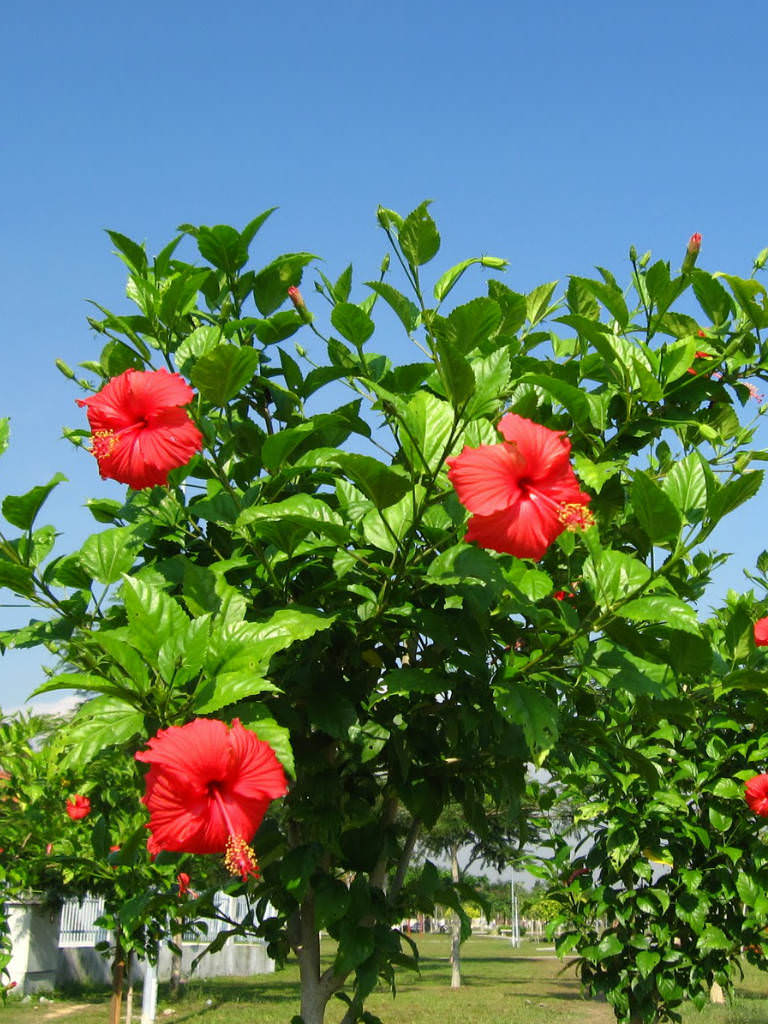
Hibiscus rosasinensis China Rose World of Flowering Plants
Hibiscus rosa-sinensis, commonly called Chinese hibiscus, is a frost tender evergreen that is probably native to tropical Asia. No wild populations of this plant have been found in modern times.
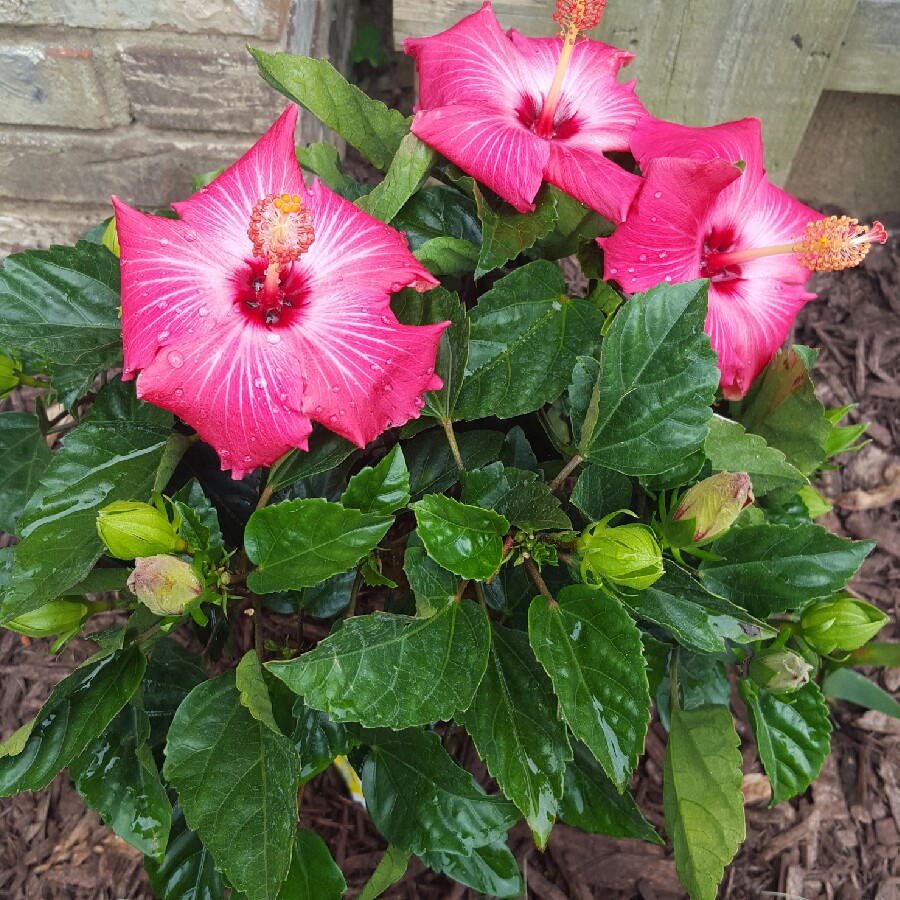
Hibiscus rosasinensis 'Painted Lady', Painted Lady Hibiscus in GardenTags plant encyclopedia
Hibiscus are beautiful plants, bearing large trumpet-like blooms in a range of colours, depending on the species. There are two main types - hardy deciduous hibiscus ( Hibiscus syriacus, used in outdoor planting schemes) and tender evergreen hibiscus ( Hibiscus rosa-sinensis, which is grown as a house plant ).
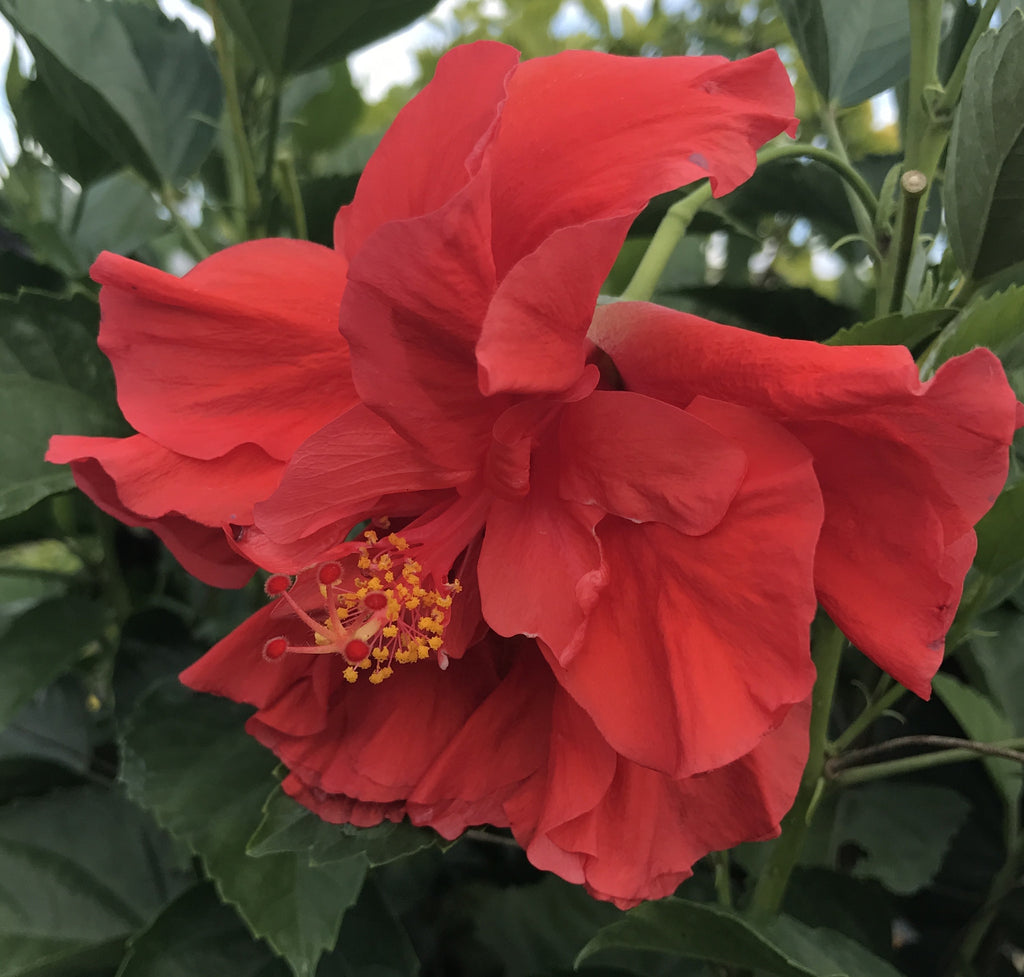
Tropical Hibiscus rosasinensis 'Double Red' Starter Plant
Hibiscus rosa-sinensis 'Brilliant' (Tropical Hibiscus) is a vigorous, well-branched, evergreen shrub noted for its bold, cardinal-red flowers, up to 6 in. across (15 cm). The slightly overlapping petals are ruffled and partially reflexed. Adding contrast is a long red floral tube lined with a bottlebrush of yellow anthers and red stigmas.
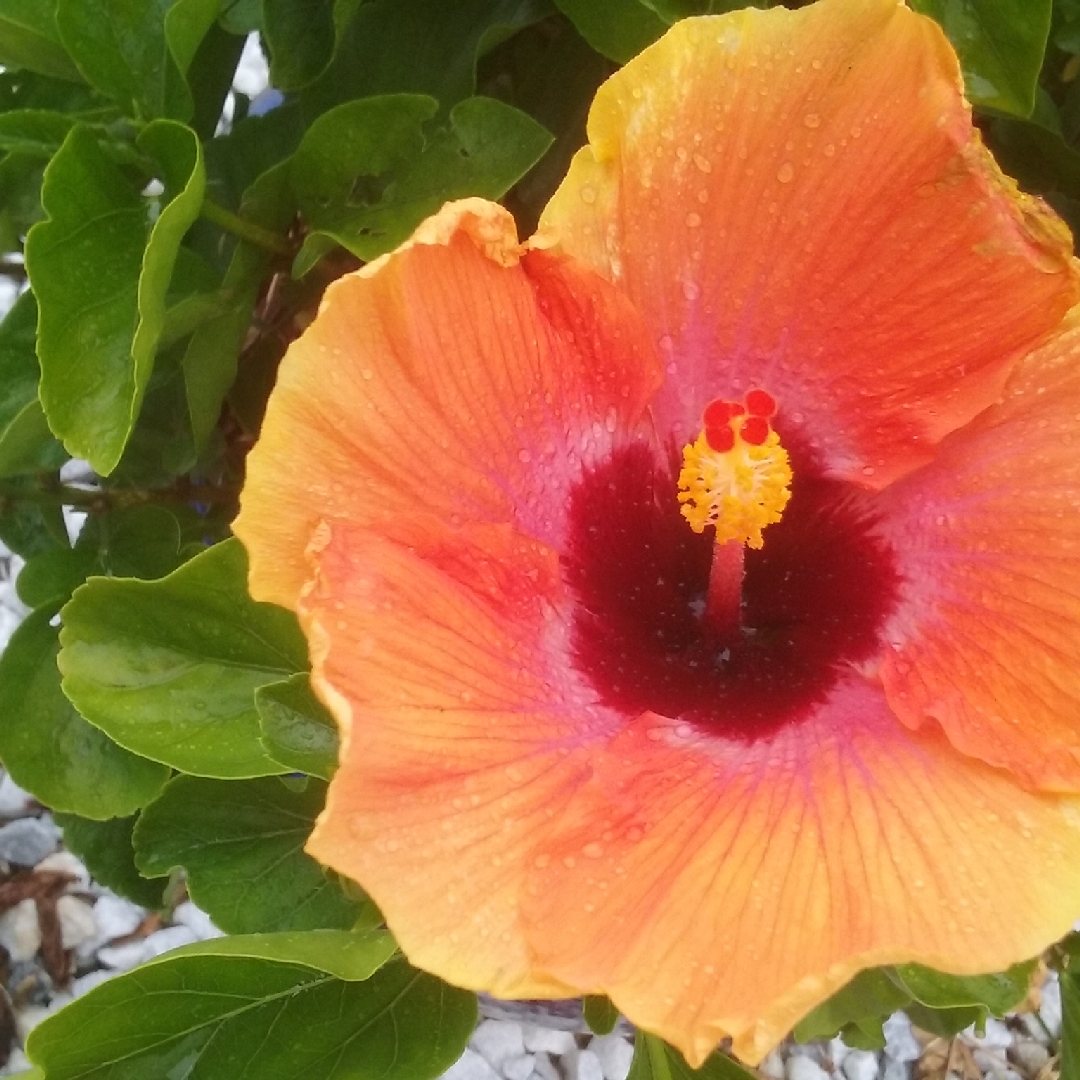
Hibiscus rosasinensis 'Hawaiian Sunset', Hibiscus 'Hawaiian Sunset' in GardenTags plant
This tropical tree grows in full sun or partial shade and does best in moist, well-drained soil. With over 200 species and many more cultivars in the genus, hibiscus flowers can reach nearly 10 inches in diameter at maturity and come in a wide range of colors from white to red, pink, yellow, and orange.

Hibiscus rosasinensis, Tropical Hibiscus in GardenTags plant encyclopedia
The Hibiscus is a genus of flowering plants in the mallow family called Malvaceae. It is uncertain if the Hibiscus is a native of China even its Latin name, Hibiscus rosa-sinensis, wherein rosa-sinensis equates to Chinese Rose. Many people believed that the Hibiscus came from India. The genus Hibiscus is quite large, containing several hundred species that are native to the warm-temperate.
.jpg)
Hibiscus rosasinensis
The Hibiscus rosa-sinensis is not a terribly hardy plant; it's only able to thrive when planted outdoors in zones 9 through 11. This evergreen shrub is a tropical plant, and as such has humidity, water, and light requirements that make it a bit tricky to grow year-round unless you're prepared with the right knowledge and conditions.
Florez Nursery Hibiscus rosasinensis 'Double Rhonda D'
Hibiscus rosa sinensis flowers. Flower edible with five petals, the size of the flower 8-15 cm, flowers color can be: red, pink, yellow, white, orange, light blue or light purple. Most of the flower the inner color darker then the outer and can be in different colors. Hibiscus rosa sinensis for sale - Seeds or Plants to Buy

HIBISCUS ROSASINENSIS The Garden of Eaden
Hibiscus rosa-sinensis is an evergreen Shrub growing to 2.5 m (8ft) by 2.5 m (8ft) at a fast rate. See above for USDA hardiness. It is hardy to UK zone 9 and is frost tender. It is in leaf all year. The species is hermaphrodite (has both male and female organs) and is pollinated by Insects. Suitable for: light (sandy), medium (loamy) and heavy (clay) soils and prefers well-drained soil.
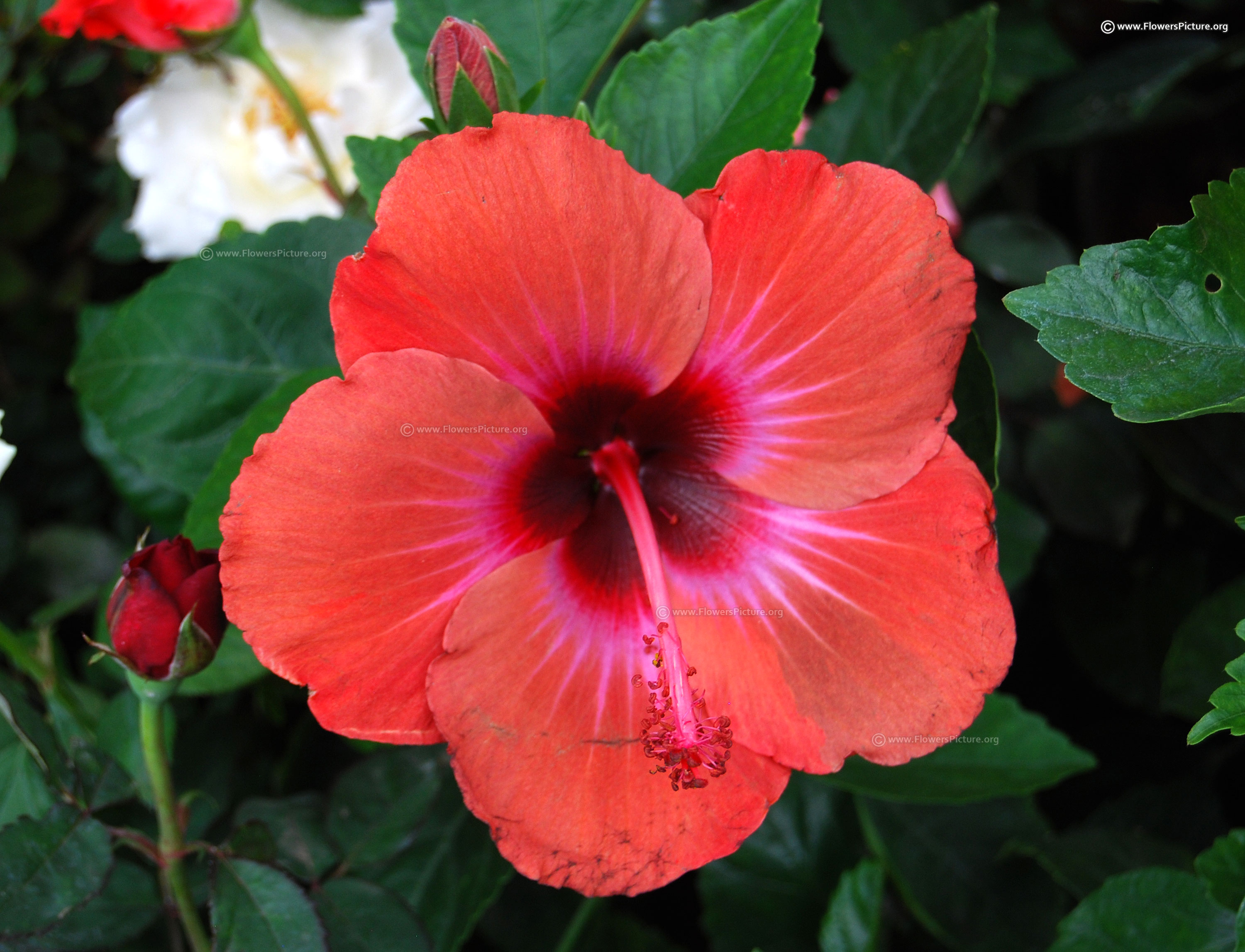
Hibiscus rosasinensis, Rose of china, 扶桑, Malaysia plant photo, 馬來西亞植物照片
Most grow as a large shrub and can reach 4-10 feet tall and 3-6 feet wide. This plant, native to Southeast Asia, is the national flower of Malaysia. Uses These Hibiscus are known for their glossy evergreen foliage and large bold flowers. Plants can be grown in containers and give a tropical feeling on a deck or patio or around a pool.
Hibiscus rosasinensis Biology
Malvaceae. Native to the UK. No. Potentially harmful. Genus. Hibiscus. Genus description. Hibiscus can be deciduous or evergreen shrubs, trees, annuals or perennials, with simple or palmately lobed leaves and large, funnel-shaped flowers over a long flowering season. Name status.
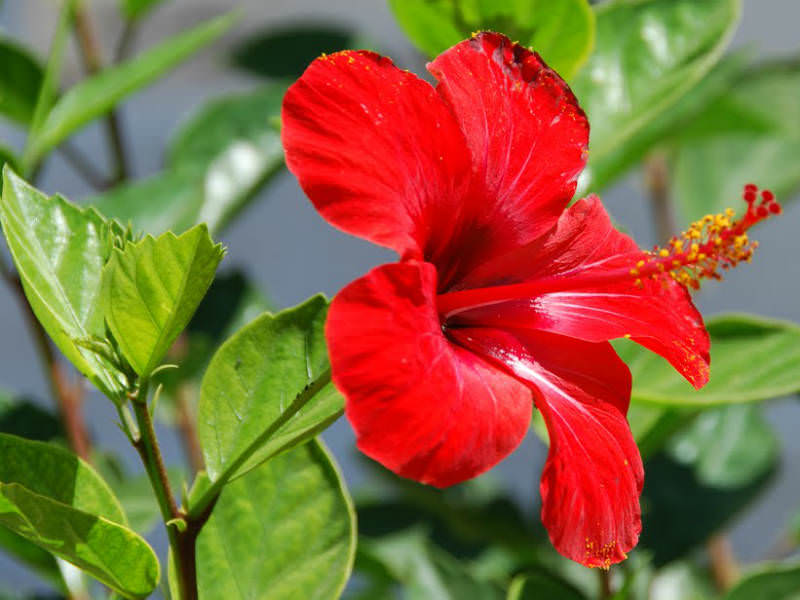
Hibiscus rosasinensis (Chinese Hibiscus) World of Flowering Plants
The Chinese hibiscus, Hibiscus rosa-sinensis, is a tropical shrub with dark green, glossy leaves, typically grown as a houseplant. Its showy, short-lived flowers come in a range in colours including crimson, yellow, orange and white, and appear successionally over a long season.
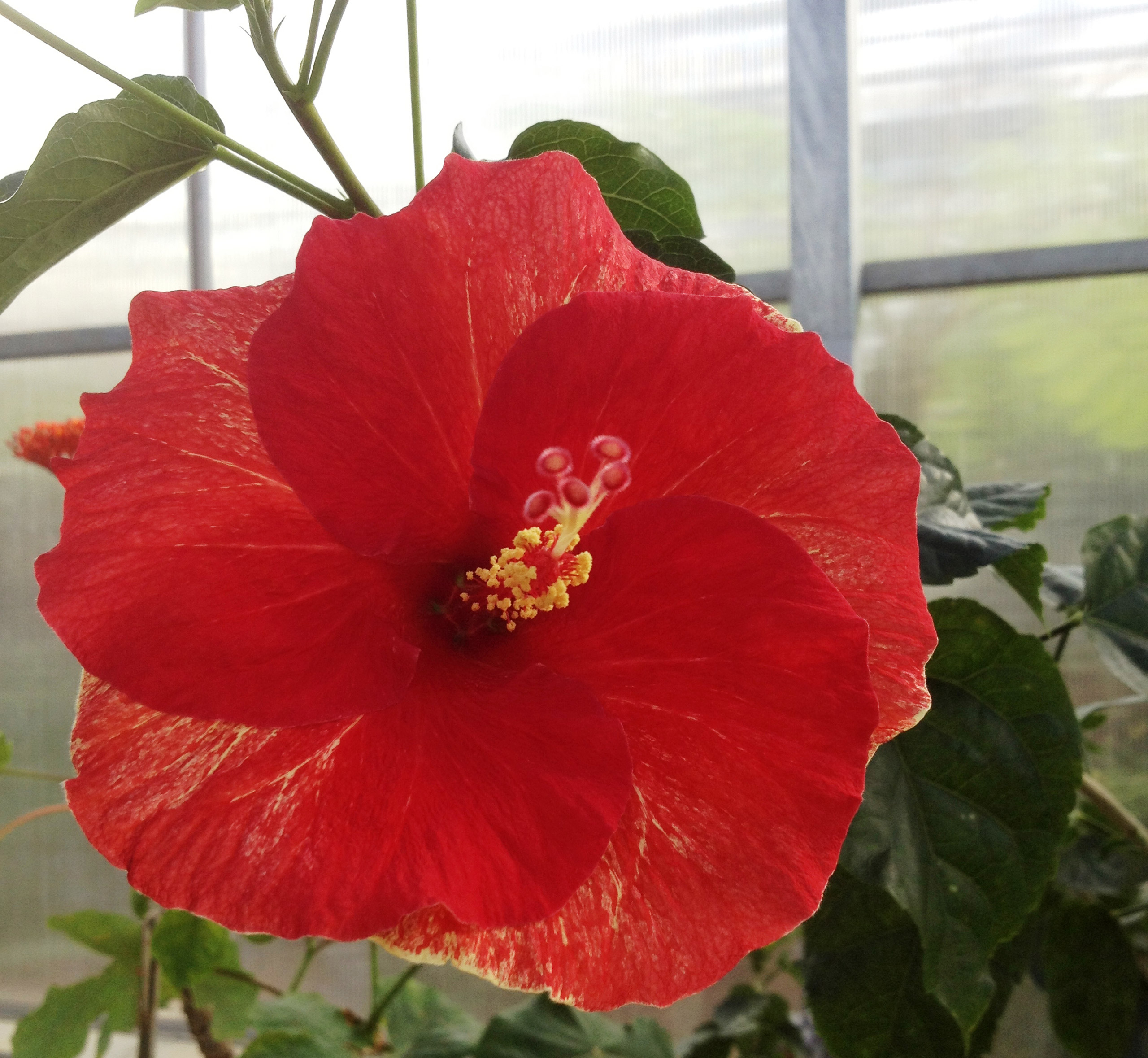
Care of Hibiscus rosasinensis Smithsonian Gardens
Hibiscus are very showy plants, producing large trumpet-like flowers in a wide range of colours, depending on the variety grown. Although there are dozens of species, there are two main types - hardy outdoor deciduous shrubs (mainly varieties of Hibiscus syriacus) and indoor evergreen plants (mainly varieties of Hibiscus rosa-sinensis ).

Buy Hibiscus rosasinensis 'Red', Tropical Hibiscus Free Shipping over 100
Hibiscus rosa-sinensis, also known by the common name, Red hibiscus, is a large shrub or small tree that grows up to 4.7 m tall. This plant has a variable stature and may be upright or broad and spreading.The leaves are arranged alternately on the branches and are ovate in shape (wider at the base than at the tip) and grow from 5 to 15 cm long.

Pink Hibiscus Flower Floral Free photo on Pixabay
Hibiscus rosa-sinensis is a bushy, evergreen shrub or small tree growing 2.5-5 m (8-16 ft) tall and 1.5-3 m (5-10 ft) wide. The plant has a branched taproot. Its stem is aerial, erect, green, cylindrical, and branched. Its leaves are simple and petiolate, with alternate phyllotaxy.